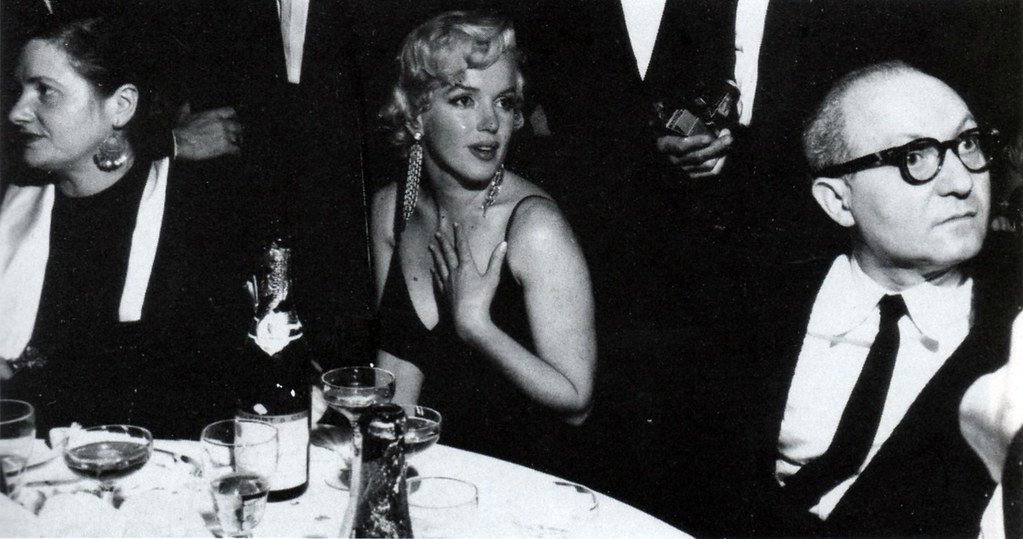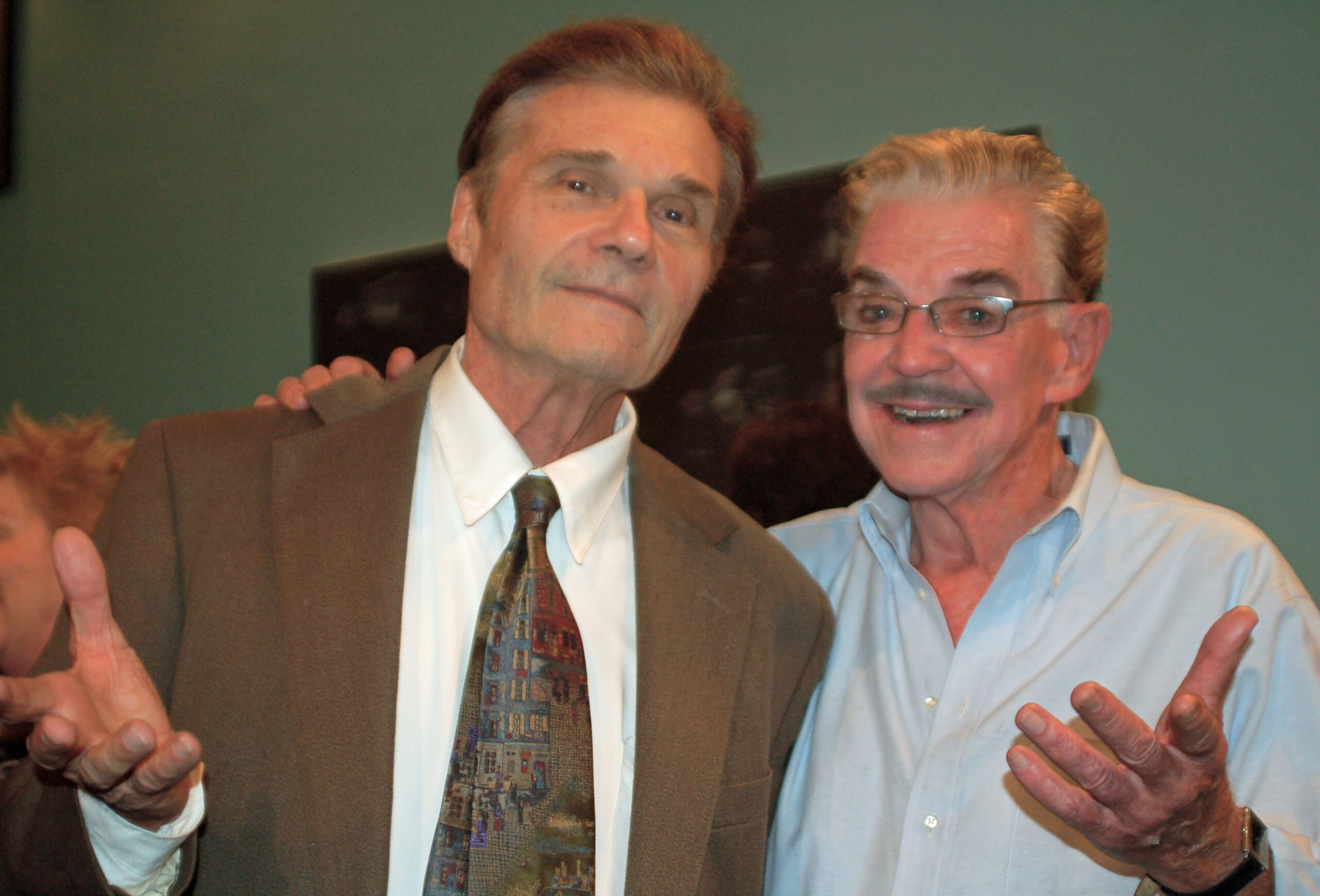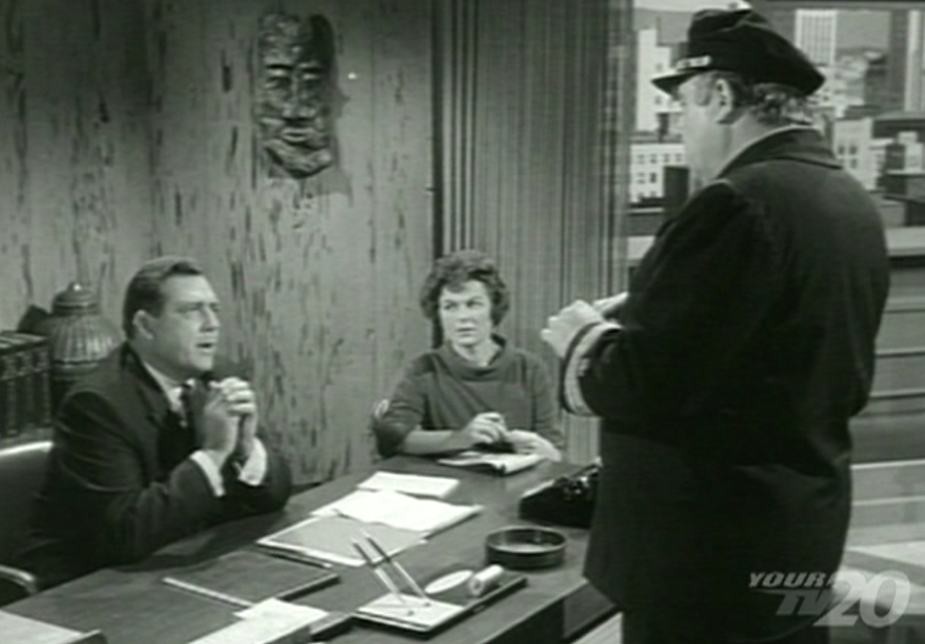
The entertainment world recently mourned the passing of Jack Fillmore Betts, a prolific and beloved character actor whose career spanned over six decades, leaving an indelible mark on stage, screen, and television. Betts, who passed away peacefully in his sleep at his home in Los Osos, California, on June 19, 2025, at the age of 96, was a true Hollywood veteran, celebrated for his versatility, dedication, and the unique spark he brought to every role. His nephew, Dean Sullivan, confirmed his passing, noting the profound impact Betts had on those around him.
From his early days on Broadway to becoming a staple in Spaghetti Westerns under the alias Hunt Powers, and later gracing the sets of iconic American television series and blockbuster films like Sam Raimi’s ‘Spider-Man,’ Betts’ journey was one of constant evolution and unwavering commitment to his craft. He was a performer who embraced every opportunity, from the dramatic intensity of Shakespeare to the nuanced complexities of soap opera characters, always striving to deliver something memorable. His colleagues and friends often spoke of his great spirit, passion, and true dedication, qualities that shone brightly throughout his extensive filmography.
As we reflect on his remarkable life, we celebrate the multifaceted career of Jack Betts, a man who, much like the characters he brought to life, navigated the ever-changing landscape of Hollywood with grace, resilience, and an infectious enthusiasm for acting. His story is not just a chronological recounting of roles, but a testament to the enduring power of talent and perseverance in a demanding industry. Join us as we explore some of the most significant chapters of his extraordinary professional life.

1. **A Storied Beginning: Early Life and Education in New Jersey and Miami**: Jack Fillmore Betts’ journey began on April 11, 1929, in Jersey City, New Jersey, where he was born and spent his formative years. This East Coast upbringing provided the initial backdrop for a life that would soon be defined by the bright lights of the stage and screen. It was a humble start that belied the grand scale of his future contributions to the arts, laying the groundwork for an actor who would ultimately traverse diverse cinematic landscapes.
When he was just 10 years old, Betts and his family made a significant move, relocating from the bustling environment of Jersey City to the sunnier climes of Miami, Florida. This change of scenery marked an important transition in his early life and inadvertently set the stage for his initial foray into performance. The move also exposed him to new opportunities that would fan the nascent flames of his artistic inclination.
It was in Miami that Betts first dipped his toes into the world of entertainment, auditioning for a talent contest held on WIOD, a local radio station. This early experience, though perhaps small in retrospect, was a crucial step, affirming a burgeoning interest in performance. It signaled the beginning of a lifelong passion for connecting with an audience, a passion that would only grow stronger with time.
His commitment to his burgeoning interest was further solidified through his academic pursuits. Betts graduated from Miami Senior High School, a foundational period in his education, before advancing to the University of Miami. There, he dedicated himself to studying theatre, formally honing the skills that would define his professional trajectory. This academic immersion provided him with the theoretical knowledge and practical training essential for a career in acting, preparing him for the challenges and triumphs that lay ahead in New York City and beyond.

2. **Broadway’s Footing: The Groundbreaking Debut in ‘Richard III’**: Following his comprehensive theatrical education at the University of Miami, Jack Betts made the quintessential move for aspiring actors of his generation: relocating to New York City. This pivotal decision positioned him at the epicenter of American theatre, a vibrant and competitive environment where talent was forged and careers were launched. His arrival in the Big Apple signified his serious intent to pursue acting as a profession.
It didn’t take long for Betts to make his mark on the prestigious Broadway stage. In 1953, he landed his very first professional acting role, making his Broadway debut as a supporting actor in a production of William Shakespeare’s ‘Richard III.’ This classical start immediately showcased his dramatic capabilities and commitment to the theatrical tradition, setting a high standard for his subsequent performances.
This debut was not merely a stepping stone but a significant achievement, establishing Betts as a formidable presence in live theatre early in his career. It provided him with invaluable experience in a demanding environment, performing Shakespeare alongside seasoned professionals. The rigor of Broadway performance would undoubtedly influence his approach to acting in all mediums for years to come.
His participation in ‘Richard III’ underscored his early dedication to the craft and his ability to command the stage. This initial Broadway credit was a proud moment, affirming his decision to move to New York and pursue his dreams. It solidified his reputation as a serious actor, capable of tackling complex roles and delivering compelling performances to discerning audiences.

3. **Shaping His Craft: The Influence of The Actors Studio and Renowned Mentors**: A truly transformative period in Jack Betts’ development as an actor began in 1954 when he became a member of The Actors Studio in New York City. This renowned non-profit organization, celebrated for its method acting approach, provided a crucible where performers could deeply refine their skills. His acceptance into such an esteemed institution was a testament to his innate talent and potential.
His entry into The Actors Studio came about in a rather serendipitous manner. When a friend sought his help with an audition, Betts himself caught the eye of the school’s director, Lee Strasberg, who was deeply impressed. This led to Betts being granted a rare and coveted three-year scholarship to study there, an opportunity that profoundly shaped his understanding of character and performance.
Under Strasberg’s tutelage, Betts immersed himself in the intensive training that would become a cornerstone of his acting technique. This period was instrumental in developing his ability to inhabit roles with depth and authenticity, a hallmark of his long career. The rigorous environment fostered a commitment to emotional truth and psychological realism in his portrayals.
The connections forged at The Actors Studio proved invaluable. Famed director Elia Kazan, another influential figure associated with the studio, recognized Betts’ talent and cast him in a production of ‘Cat on a Hot Tin Roof.’ Betts would later return to Broadway for Kazan’s 1959 production of ‘Sweet Bird of Youth,’ further solidifying his artistic partnership with one of the era’s most respected directors. This exposure to such towering figures early in his career provided a masterclass in performance and direction.

4. **Early Television Ventures: Defining Roles in Mystery and Daytime Dramas**: As the landscape of entertainment broadened to include the burgeoning medium of television, Jack Betts seamlessly transitioned his talents from the stage to the small screen. His early television career was marked by significant roles that showcased his versatility and established him as a dependable presence in episodic dramas. This period was crucial in building his reputation as a character actor.
From 1960 to 1962, Betts captivated audiences as Chris Devlin in the CBS mystery series ‘Checkmate.’ Appearing in six episodes, his portrayal of the detective alongside Anthony George, Sebastian Cabot, and Doug McClure demonstrated his ability to contribute to a compelling ensemble. The series, created by Eric Ambler, followed private detectives in San Francisco, offering Betts a platform to explore the intricacies of a mystery genre.
Shortly after his stint on ‘Checkmate,’ Betts entered the world of daytime television, a domain where he would later become exceptionally prolific. He landed the role of Dr. Ken Martin in ‘General Hospital,’ portraying the character from 1963 to 1965. This early immersion in soap operas provided him with extensive experience in sustained character development and the rapid pace of daily television production.
His engagement with daytime television was not limited to a single role; it became a consistent part of his career. Later, in 1982, he portrayed Mr. Fisher, an 80-year-old man, on ‘One Life to Live,’ showcasing his impressive range and ability to convincingly embody characters of various ages. These early television roles were foundational, proving his adaptability and setting the stage for a lengthy and diverse career on the small screen.

5. **A Master of Legal Drama: Four Memorable Appearances on ‘Perry Mason’**: Among his numerous early television credits, Jack Betts made a particularly notable impact on the iconic CBS drama series ‘Perry Mason.’ His ability to convincingly portray a variety of characters within the legal procedural format led to him appearing in four distinct roles across the show’s celebrated run from 1961 to 1966. This frequency of appearance underscored his reliability and talent.
His first appearance came in 1961, when he took on the role of Bert Nickols in the episode titled ‘The Case of the Impatient Partner.’ This initial role allowed him to showcase his dramatic capabilities within the structured, intense world of courtroom drama. It was a strong start that hinted at his future contributions to the series.
Betts returned to the series in 1962, appearing as Enos Watterton in ‘The Case of the Double Entry Mind.’ Each role presented a new challenge, requiring him to craft distinct personalities and motivations within the overarching narrative of legal intrigue. This demonstrated his range as an actor, a quality highly valued in the episodic television of the era.
His later appearances further cemented his presence on the show. In 1964, he portrayed the murder victim George Parsons in ‘The Case of the Wooden Nickels,’ a role that, despite its tragic outcome for the character, was crucial to the episode’s plot. Two years later, in 1966, he again played a murder victim, Bruce Strickland, in ‘The Case of the Fanciful Frail.’ These recurring, albeit varied, roles on ‘Perry Mason’ highlight Betts’ skill in bringing memorable, albeit often ill-fated, characters to life within one of television’s most enduring legal dramas.

6. **The Oscorp Boardroom: Jack Betts’ Iconic Scene in Sam Raimi’s ‘Spider-Man’**: Decades into his distinguished career, Jack Betts found himself in what would become arguably his best-known film role, that of Henry Balkan in Sam Raimi’s 2002 blockbuster ‘Spider-Man.’ This role, though relatively brief, was pivotal to the narrative, providing the catalyst for the transformation of Norman Osborn into the villainous Green Goblin. It was a role that showcased Betts’ gravitas and presence.
As the Oscorp Technologies board chairman, Betts’ character, Henry Balkan, delivered the fateful line that set the film’s primary antagonist on his path: “You’re out, Norman.” This terse declaration, aimed at Willem Dafoe’s Norman Osborn, stripped the brilliant but unstable scientist of his company, igniting his rage and ultimately leading to his tragic villainous metamorphosis. The scene was charged with tension and delivered with a commanding performance from Betts.
The filming of this iconic boardroom scene offered a revealing glimpse into Betts’ collaborative spirit and his desire to bring nuanced depth to every performance. In a 2020 interview on ‘The Dev Show,’ Betts recounted how he asked director Sam Raimi if he could add a unique ‘spin’ to his delivery. He explained, “I really looked Defoe right in the eye, and I had kind of a smile in my eye — you know, like, ‘You’re fired, you motherf–ker.’”
Raimi, known for his appreciation of creative input, readily embraced Betts’ suggestion. Betts recalled, “After, I finished it, Raimi said, ‘That’s it. Terrific. Print that one.’ My point being is that I wanted to add something just a little different to it instead of doing it the same way over and over and over and over. [Raimi] he was willing to do that. He really was. Wonderful man to work with.” This anecdote not only highlights Betts’ artistic intuition but also the trust and respect he garnered from prominent directors, cementing his place in superhero cinema history with a truly memorable, impactful moment.

7. **A Prolific Presence on the Small Screen: Daytimes and Prime-Time Series**: While his early television roles in ‘Checkmate’ and ‘General Hospital’ laid crucial groundwork, Jack Betts truly distinguished himself as a ubiquitous and versatile presence across the television landscape for decades. His career became a testament to the sheer volume of work and adaptability required to thrive in an ever-evolving medium, transitioning seamlessly between long-running serials and episodic dramas that defined various eras of American television.
Betts cultivated a particularly extensive and memorable career within the demanding world of daytime soap operas. Beyond his early stint on ‘General Hospital’ and his portrayal of an 80-year-old Mr. Fisher on ‘One Life to Live’ in 1982, he also appeared as Dr. Ivan Kipling on ‘One Life to Live’ from 1979 to 1985. His impressive roster of soap opera credits further includes ‘The Edge of Night,’ ‘The Doctors,’ ‘Another World,’ ‘All My Children,’ ‘Search for Tomorrow,’ ‘Guiding Light,’ ‘Loving,’ ‘The Young and the Restless,’ and ‘Generations.’ These roles showcased his ability to develop characters over extended periods, a skill honed by the rapid production pace of daily television.
His versatility extended well into prime-time, where he made numerous guest appearances on some of television’s most beloved and iconic series. From the classic Western ‘Gunsmoke’ to popular sitcoms like ‘Seinfeld,’ ‘Frasier,’ ‘Everybody Loves Raymond,’ and ‘Friends,’ Betts consistently delivered memorable performances. He also graced the sets of crime dramas and mysteries such as ‘The Mentalist,’ ‘Monk,’ ‘The Unit,’ ‘Kojak,’ and ‘Remington Steele,’ demonstrating his broad appeal and capacity to inhabit diverse narrative worlds across multiple genres and decades.
Betts’ commitment to television acting endured throughout his life, with his last credited series appearance occurring on the Freeform drama ‘Good Trouble’ in 2019. This remarkable longevity, spanning from the early days of televised drama to contemporary streaming-era productions, underscores a career built on consistent talent and an unwavering dedication to the craft, making him a familiar and respected face to generations of viewers.

8. **An Unbreakable Kinship: The Deep Friendship with Doris Roberts**: One of the most profound and enduring relationships in Jack Betts’ life was his deep and cherished friendship with the celebrated ‘Everybody Loves Raymond’ star, Doris Roberts. Their bond, forged in the crucible of artistic ambition, transcended professional collaboration to become a decades-long personal connection that profoundly enriched both their lives.
Their paths first crossed in 1954, a pivotal year, as both aspiring actors became members of the esteemed Actors Studio in New York City. This shared foundational experience in method acting laid the groundwork for a kinship rooted in mutual respect for the craft. Over the years, their friendship blossomed, moving beyond the professional sphere into a close personal connection.
In 1988, their bond deepened further when Betts accepted Roberts’ invitation to move from New York City into the downstairs apartment of her Hollywood Hills home. This arrangement allowed them to share a home for many years, cementing their status as inseparable companions and confidantes, a period that lasted until Roberts’ passing in 2016.
Following Roberts’ death, Betts publicly expressed the depth of his sorrow and affection, gushing, “We were best friends to the very end, we had wonderful times together.” This heartfelt statement encapsulates the extraordinary nature of their friendship, a testament to a partnership both personal and professional, as Roberts also directed Betts’ play, ‘Screen Test: Take One,’ further intertwining their lives and legacies.
As the curtain falls on a remarkable life, Jack Betts leaves behind a legacy defined by versatility, a profound artistic spirit, and the countless characters he brought to life, ensuring his memory will continue to inspire and entertain for generations to come.



